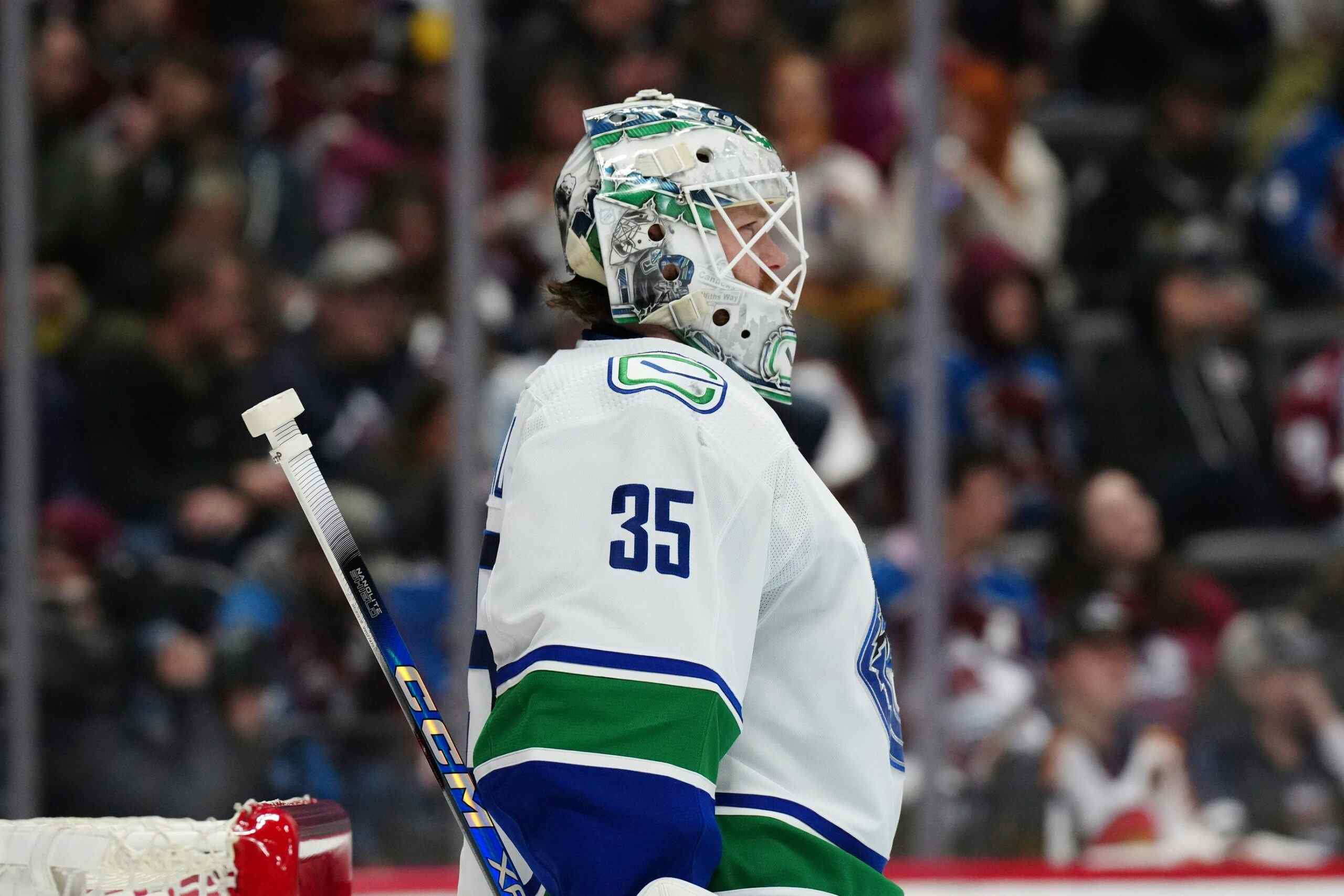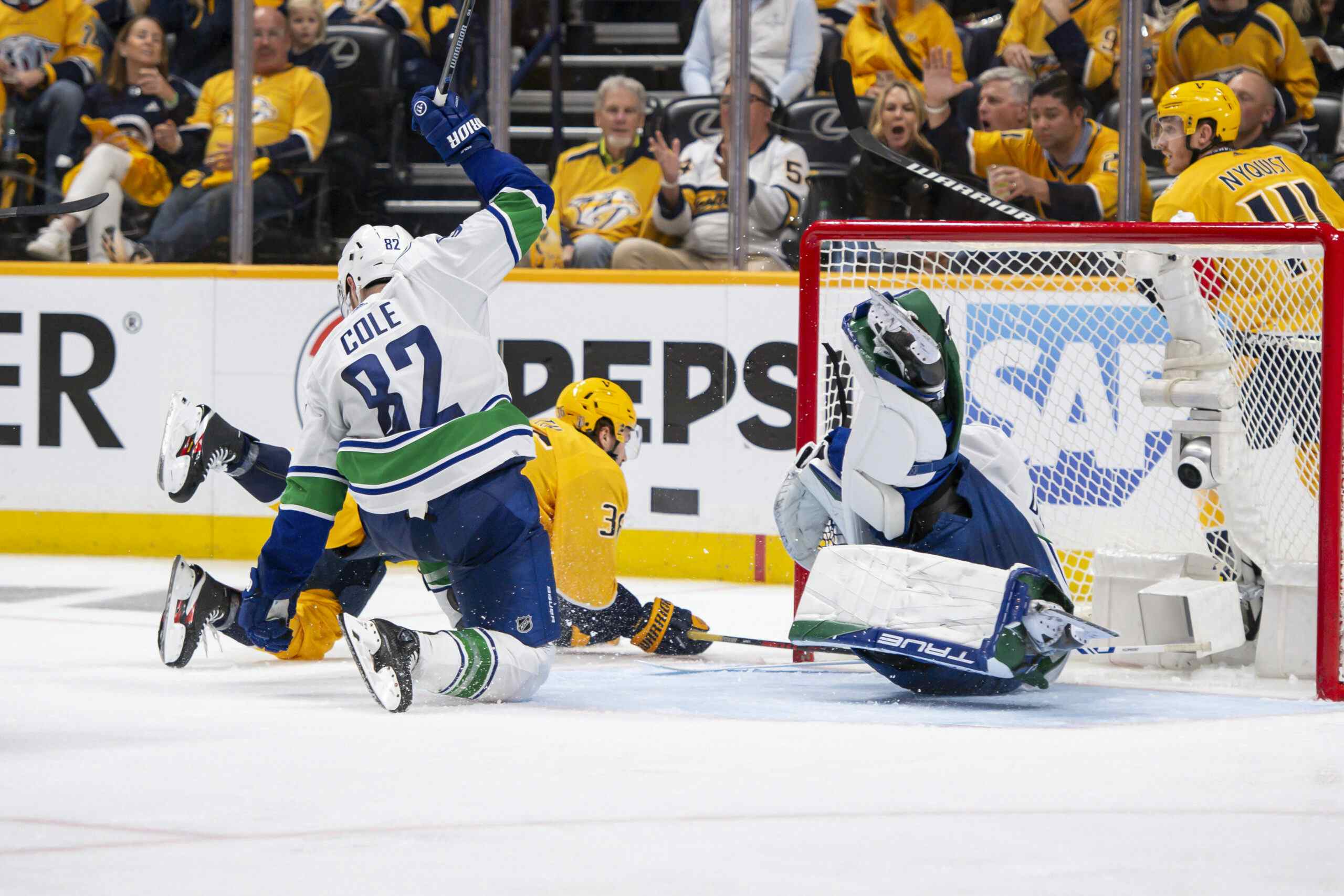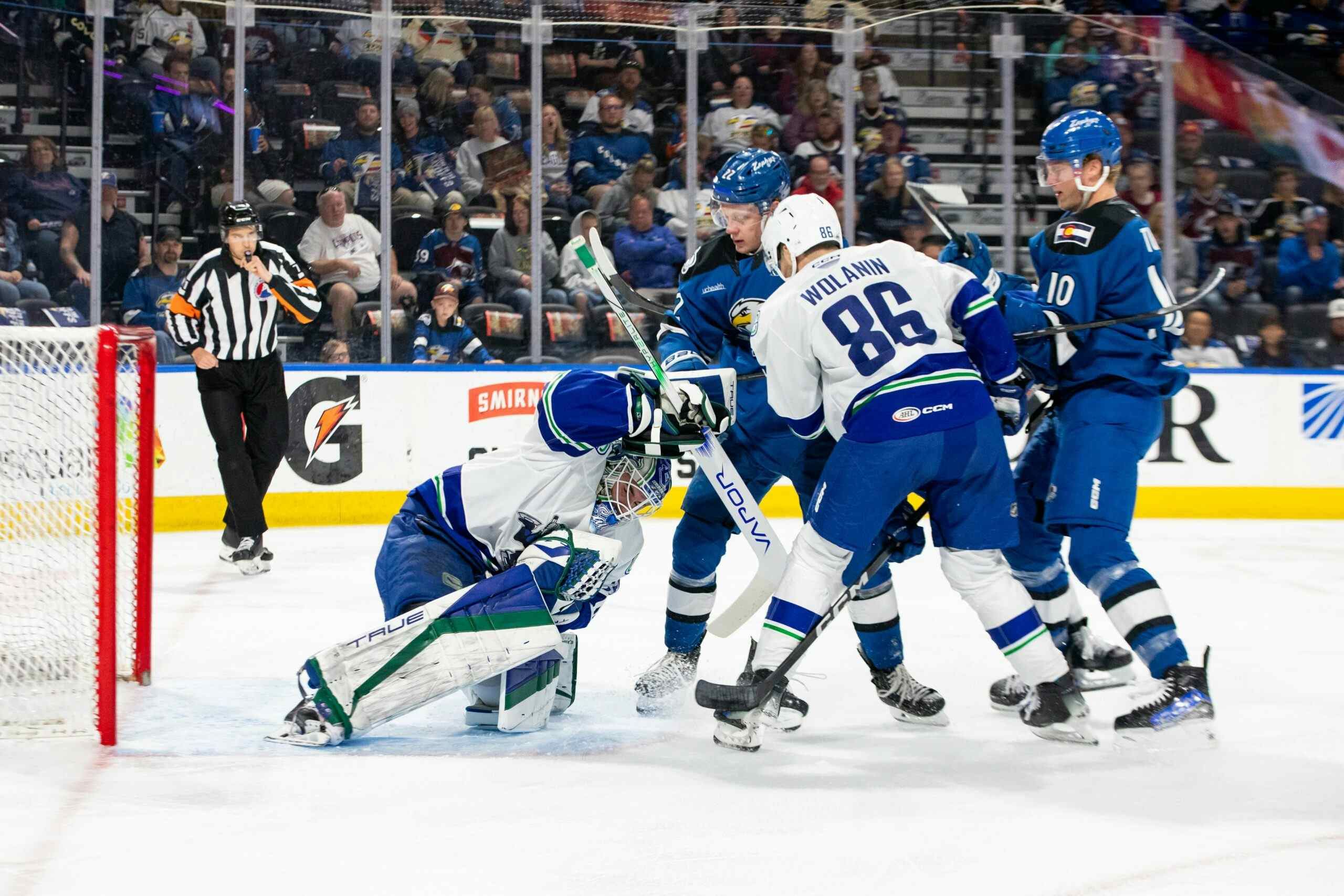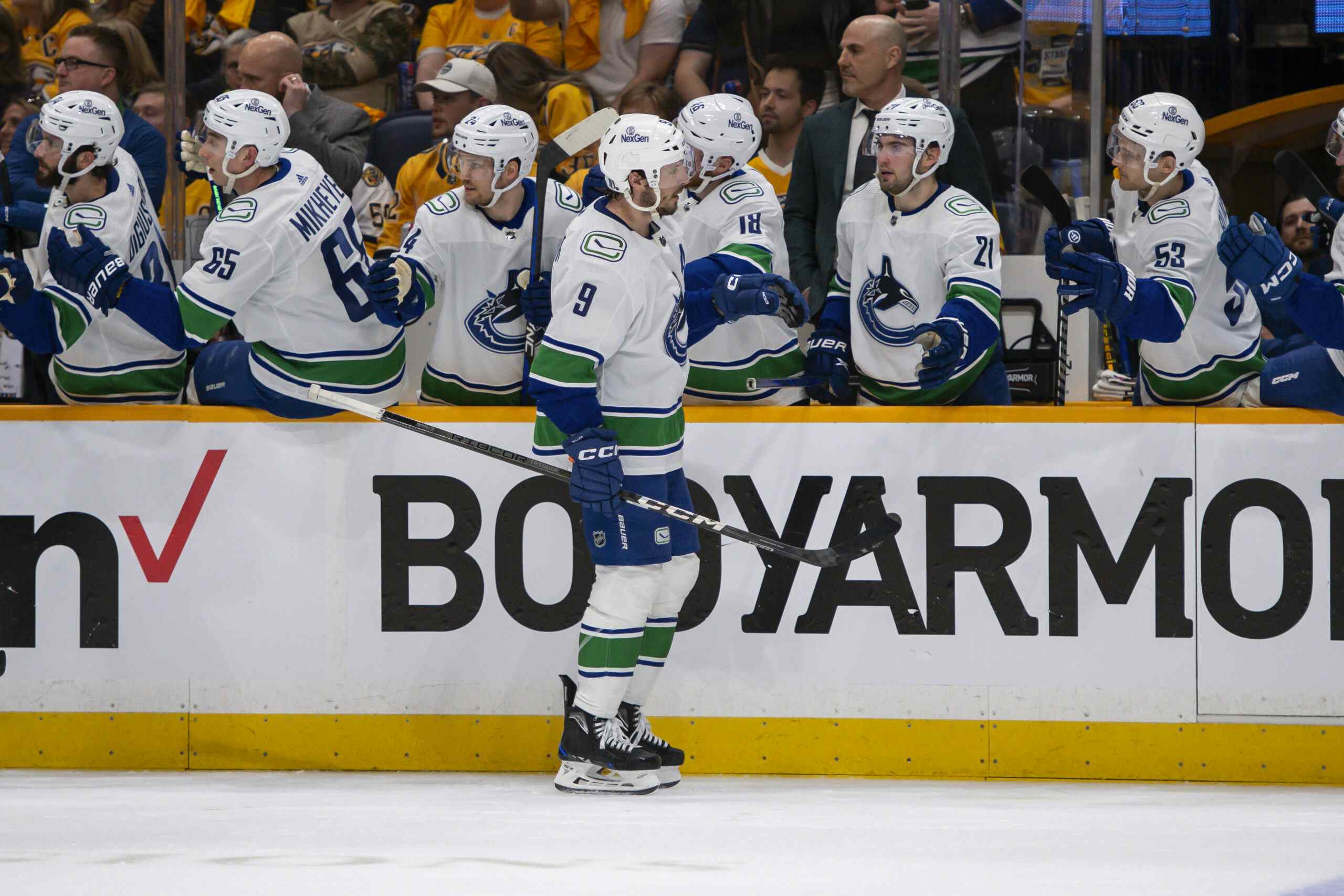Strombabble: The Luongo Rule

When the NHL leaked a CBA proposal on their website in October, their offer to the NHLPA included a clause designed to punish teams who had taken advantage of loops-holes in the previous CBA, and signed players to life-time deals (like Luongo’s) with back-diving contracts that served to pay these players a salary well above their cap-hit, and in doing so circumvent the salary cap.
This punitive clause was initially dubbed the "Kovy Klause" because Twitter has ample appreciation for alliteration, and it stipulated that: should a player with a back-diving contract retire early, that player’s cap-hit would revert back to the team that signed that player originally, even if that player had long since been traded. We thought that the provision – if adopted in the final CBA – could conceivably boost Luongo’s trade-value by mitigating the long-term risk of acquiring Luongo’s contract to any potential Luongo-trade partners. We again mentioned this possible clause as a bit of uncertainty when looking at trade possibilities on Monday morning.
On Monday evening however we learned from Pierre LeBrun and Elliotte Freidman, that the Canucks will catch a tough break on this one.
The clause in the proposed NHL CBA has been revamped, and is now renamed "the Luongo rule" in LeBrun’s ESPN take. Rather than simply punishing the team that signed the original salary cap circumventing deal should that player retire before the expiry of their contract, the clause will now have a punitory impact on the salary cap of both the team that originally signed the deal (the Canucks, in Luongo’s case) and whichever team acquires that contract through trade should the player retire.
The revamped clause is significantly less punitive for the Canucks over the long-term than the one proposed in October would have been. However, by punishing the team that acquires the longterm contract as well as the team that originally signed the player, this clause will presumably have a somewhat deleterious impact on Luongo’s trade value.
Read on past the jump for more.
To wit: let’s say the Canucks trade Luongo soon. Luongo has played two years of his 12-year contract, the Canucks paying him $16.716 million in salary but only absorbing a $5.33 million cap hit each year. That’s a cap savings of $6.056 million over two years so far for Vancouver. Under this new rule, should the Canucks trade him now and he retires with three years left on his contract, Vancouver would be charged that $6.056 million in cap savings over the final three years left on his deal from 2019 to 2022. However, let’s say for argument’s sake Luongo gets traded to Toronto, the Maple Leafs also would be subject to cap penalties if Luongo retires before the end of his deal.To wit, part 2: If Luongo were to play the next seven years of his deal in Toronto before retiring, the Leafs would be paying him $43.666 million in salary but only counting $37.31 million against the cap over those seven years, a cap savings of $6.356 million. So if Luongo retires with three years left on his deal (because his salary falls to $1.618 million in the 10th year and then $1 million in the last two years of the deal), the Leafs would get charged that $6.356 million on their cap spread evenly over the remaining three years of his deal.
That LeBrun picked three years before Luongo’s contract expires as his "retirement example" is spot on. Per CapGeek Luongo’s contract will pay him 6,714,000 in each of the next five seasons following the shortened 2013 season. After that, Luongo’s salary drops to a shade under 3.5 million for the 2018-19 season before hovering just above 1.5 million for 2019-20, and dropping to one million flat for two seasons from 2020-2022. In those final three seasons which, Luongo will have diminished incentive to participate in; Vancouver’s star goaltender will be 41, 42 and 43 years of age…
Overall this clause is good news for the 2019 Canucks, and bad news for the 2013 Canucks. Let’s start with the good news.
First of all, this new formulation of "the Luongo rule" will save the 2019-2022 Canucks ~3.33 million against the cap in each of Luongo’s final three seasons (should he retire early) when judged against the previous iteration of the clause in the NHL’s leaked October proposal. Secondly, the salary cap will continue to increase under the life of the new NHL CBA. By 2019, James Mirtle conservatively estimates that the NHL salary cap would be at 78.6 million dollars. In that sort of cap climate, you can obviously plan around a dead-space cap-hit representing 2.5% of the salary cap.
The bad news is that "the Luongo rule" does less to mitigate the long-term risk for any buyer interested in acquiring Luongo’s valuable services and the hefty contract those services are attached to. That said, the "cap benefit" hit to Toronto’s salary cap were Luongo to retire following the 2019 campaign would be manageable. Not to mention that it seems like splitting airs to worry about a relatively small albeit punitive "cap-benefit" hit in six years time, when that "risk" is completely dwarfed by the risk represented by the acquisition of a soon-to-be 34 year old goaltender who will earn nearly seven million in salary per season until he turns 39.
One more thing I’ll briefly mention about "the Luongo rule" is that this clause shouldn’t, and probably won’t, change Gillis’ calculations regarding a timeline for a Luongo trade. Assuming that Luongo will retire in 2019, even if the Canucks were to hold onto Luongo for the entirety of the 2013 season (thereby accruing an extra $1,382,667 in "cap-benefit" off of his contract) before dealing him, the annual hit the Canucks would deal with from 2019-2022 would still be a managable $2.479 million in each of those three seasons.
Of course rules are meant to be broken, and the Canucks are no strangers to punching craters in the various sections and clauses of the NHL’s collective bargaining agreements. Elliotte Friedman noted a couple of circumstances which could cushion the potential blow of "the Luongo rule" in his take on the "cap benefit hit" on Monday night:
First of all, with the opt-out clauses attached to the length of the new CBA, there’s no guarantee the rules will be the same by the time the penalties are scheduled to take effect.Second, there may just be a loophole. From what I understand, Long-Term Injury Reserve still exists. (For example, it allows Chris Pronger to come off the Philadelphia cap while he recovers from concussions).God forbid Luongo (or anyone else) goes through that. But he will be 40 in the summer of 2019. Who knows what happens to a goalie’s body by then? Maybe he’s had enough and is battling some nagging groin or hip or knee problem. He goes on LTIR, still gets paid and neither Toronto nor Vancouver gets any kind of penalty.
Quality reporting on this CBA provision from two of the best in the business in Pierre Lebrun and Elliotte Friedman. Go read both takes in full here (ESPN) and here (CBC).
Update: I misunderstood this in my initial reading of LeBrun and Freidman, but the "cap-benefit" hit will be charged to the club during the gap between which Luongo retires, and when his contract expires. So, if Luongo is traded this season and retires in 2019, the 6.056 million would be charged to the Canucks over three seasons (no big deal). If Luongo retired in 2021, however, the Canucks would be stuck with that 6.056 million cap-hit for that season.
I have to say, I think that’s a pretty stiff penalty for signing a contract that was within the rules of the 2005-2012 CBA…
Update II: Having slept on it, and observed some of the conversations going on about the "adorable" Luongo rule on Twitter – I think we need to qualify this post somewhat. As James Mirtle points out, the way the rule appears to work at the moment based on the details that have leaked so far, just doesn’t make a lot of sense:
I’m going to wait for more details before writing on the cap benefit recapture rule. What’s currently out there doesn’t make sense.— James Mirtle (@mirtle) January 8, 2013
Seems to me that something is a miss, and that Mirtle’s caution on this subject is well-founded enough to be included in this post for now. After all, sometimes "discretion is the better part of valour."
Recent articles from Thomas Drance





